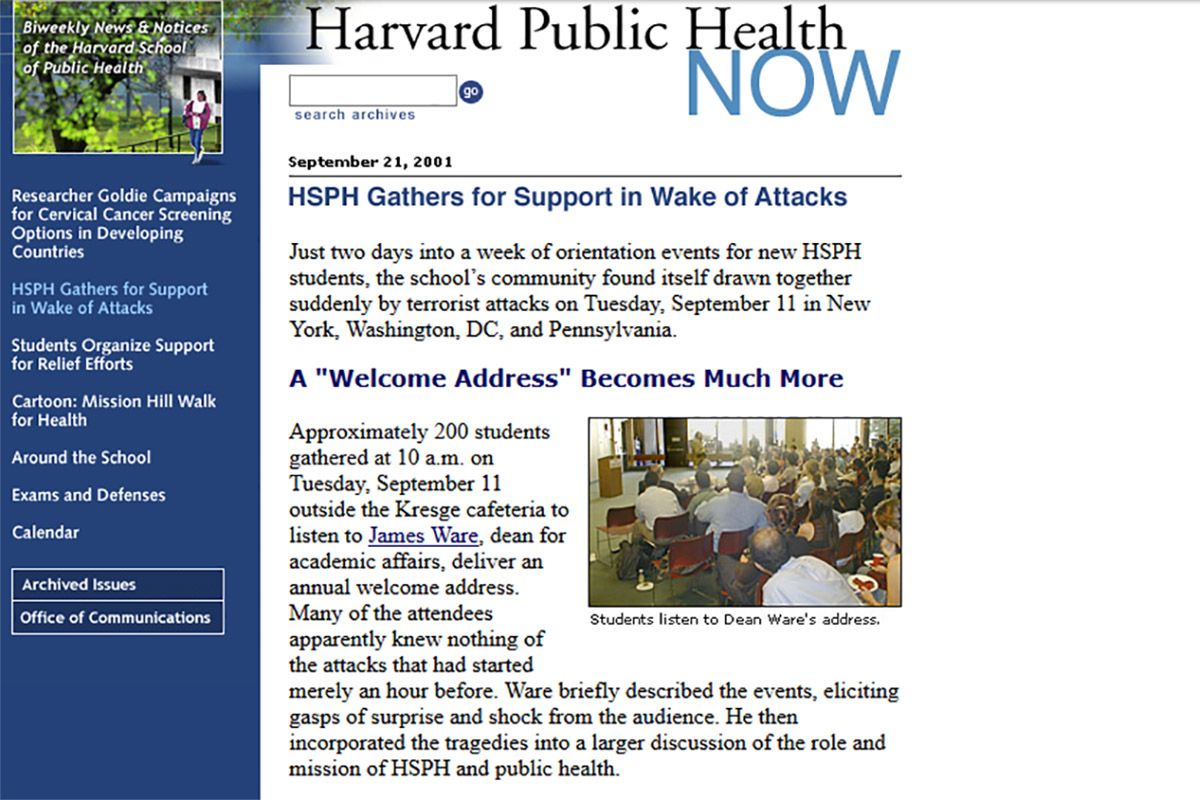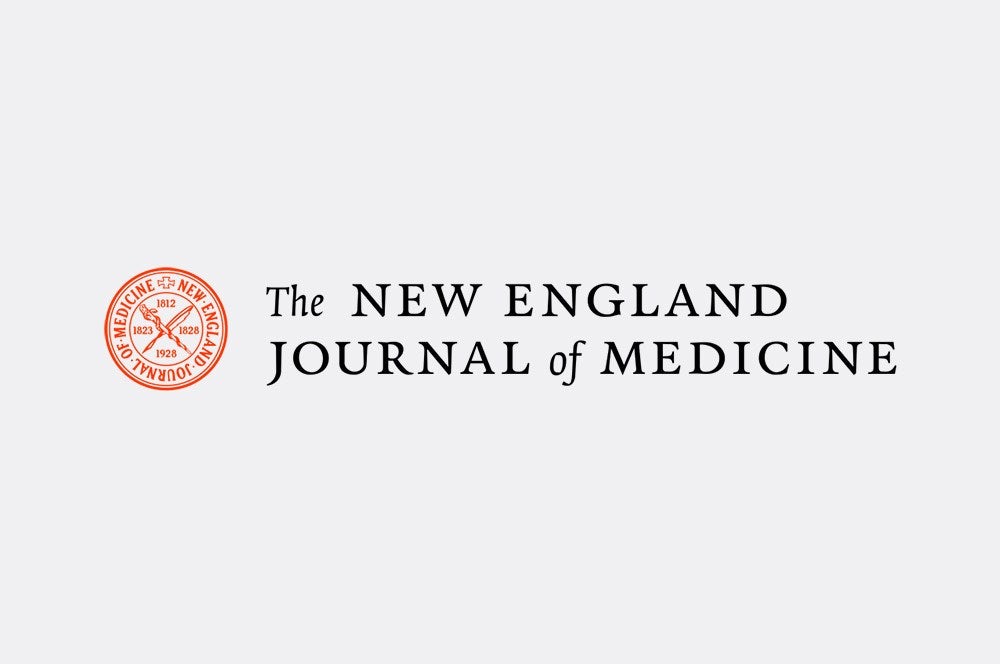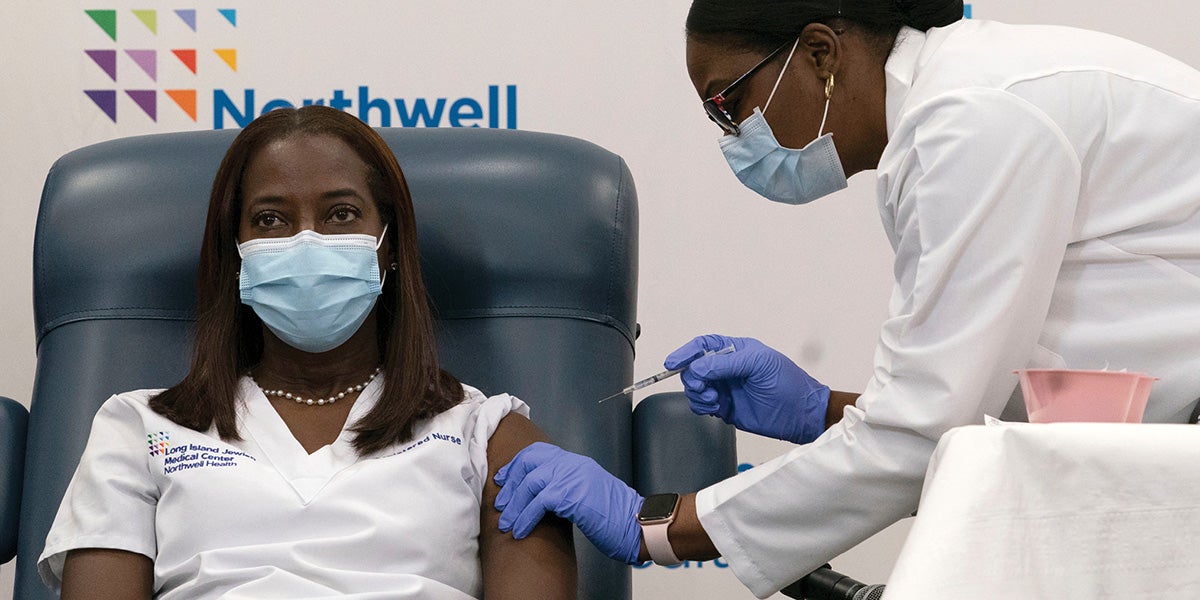Barry R. Bloom
Joan L. and Julius H. Jacobson Professor of Public Health, Emeritus
Immunology and Infectious Diseases
Links
Overview
Dr. Barry Bloom is recognized as a pioneer in the field of global health. Trained in immunology, he has made important contributions to infectious diseases, vaccines and global health policy. His lifelong commitment has been to bring knowledge and methods of cutting edge basic science to alleviating the burdens of disease in developing countries. His research has been primarily focused on the immunology and pathogenesis of leprosy and of tuberculosis, which remains the largest cause of death from an infectious disease, with 9.6 million new cases and 1.5 million deaths per year.
His research first established that lymphocytes and not macrophages had specificity for antigens, that living cells were required for mediating transfer of delayed-type hypersensitivity, and that activated T cells released a new category of non-antibody proteins, now known as cytokines, which mediate cell mediated immune responses. His work established a mechanism by which immune responses to antigens of the leprosy bacillus lead to demyelination and nerve damage. His laboratory defined necessary immune responses for protection against tuberculosis in animal models and established the molecular mechanisms by which mouse, and later in collaborations, by which human macrophages carry out their antimicrobial activity against M. tuberculosis and other intracellular pathogens. This is a vitamin-D dependent pathway mediated by antimicrobial peptides. In collaboration, he developed the first genetic system in mycobacteria and has contributed to the development of new vaccine candidates against tuberculosis. He has been a strong advocate for the importance of vaccines as the most cost-effective intervention to prevent death and disease in developing countries. Dr. Bloom has published more than 350 articles, edited 7 books, and continues to provide commentary on current issues in public and global health.
Dr. Bloom’s scientific contributions have made him a trusted advisor in public health policy. He has served as an advisor to the White House on International Health Policy. For more than 40 years, he has been an advisor to the World Health Organization, where he chaired the Research Advisory Committees on Leprosy, Tuberculosis, Malaria, and Tropical Diseases and was a member of the WHO Advisory Committee on Health Research. His past service includes membership on the National Advisory Council of the US National Institute for Allergy and Infectious Diseases (NIAID), the Scientific Advisory Board of the National Center for Infectious Diseases of the Centers for Disease Control and Prevention (CDC), and the National Advisory Board of the Fogarty International Center at the National Institutes of Health, as well as the Governing Board of the Institute of Medicine. He is a former investigator of the Howard Hughes Medical Institute and served on their Medical Advisory Board. He served as President of the American Association of Immunologists and of the Federation of American Societies for Experimental Biology.
Dr. Bloom was the founding chair of the board of trustees for the International Vaccine Institute in South Korea, which is devoted to promoting vaccine development for the developing world. He currently serves on the scientific advisory boards of the Wellcome Trust Institute for Human Genetics, Oxford, UK, and the Doris Duke Charitable Foundation Clinical Scholars program, the KwaZulu Natal Institute for Research in Tuberculosis and HIV (K-RITH), and the Human Heredity and Health in Africa (H3Africa) program.
Dr. Bloom came from the Albert Einstein College of Medicine in New York to the Harvard T.H. Chan School of Public Health as Dean of the Faculty in 1999, which he served for a decade. He received the first Bristol-Myers Squibb Award for Distinguished Research in Infectious Diseases, shared the Novartis Award in Immunology in 1998, and was the recipient of the Robert Koch Gold Medal for lifetime research in infectious diseases. Dr. Bloom was elected to membership in the US National Academy of Sciences, National Academy of Medicine, and the American Philosophical Society.
AB, 1958, Biology
Amherst College, Amherst, Massachusetts
PhD, 1963, Immunology
Rockefeller University, New York, NY
ScD, 1990, (Honorary)
Amherst College, Amherst, Massachusetts
MA, 1998, (Honorary)
Harvard University, Cambridge, Massachusetts
ScD, 2007, (Honorary)
Erasmus University, Rotterdam, Netherlands
ScD, 2014, (Honorary)
Ohio State University, Columbus, Ohio
Bibliography
IFN-?-mediated control of SARS-CoV-2 infection through nitric oxide.
Silva BJA, Krogstad PA, Teles RMB, Andrade PR, Rajfer J, Ferrini MG, Yang OO, Bloom BR, Modlin RL.
Front Immunol. 2023. 14:1284148. PMID: 38162653
A half-century of research on tuberculosis: Successes and challenges.
Bloom BR.
J Exp Med. 2023 09 04. 220(9). PMID: 37552470
TREM2 macrophages induced by human lipids drive inflammation in acne lesions.
Do TH, Ma F, Andrade PR, Teles R, de Andrade Silva BJ, Hu C, Espinoza A, Hsu JE, Cho CS, Kim M, Xi J, Xing X, Plazyo O, Tsoi LC, Cheng C, Kim J, Bryson BD, O'Neill AM, Colonna M, Gudjonsson JE, Klechevsky E, Lee JH, Gallo RL, Bloom BR, Pellegrini M, Modlin RL.
Sci Immunol. 2022 07 22. 7(73):eabo2787. PMID: 35867799
Audio Interview: Do the Tobacco Wars Offer Any Lessons for the Vaccine Wars?
Rubin EJ, Baden LR, Bloom BR, Morrissey S.
N Engl J Med. 2022 04 14. 386(15):e48. PMID: 35417644
The Tobacco Wars' Lessons for the Vaccination Wars.
Bazell R, Koh H, Bloom BR.
N Engl J Med. 2022 06 09. 386(23):2159-2161. PMID: 35417634
Fundamentals of Public Health - A New Perspective Series.
Bloom BR, Malina D, Pittman G, Morrissey S, Rubin EJ.
N Engl J Med. 2021 08 05. 385(6):556-557. PMID: 34347957
The cellular architecture of the antimicrobial response network in human leprosy granulomas.
Ma F, Hughes TK, Teles RMB, Andrade PR, de Andrade Silva BJ, Plazyo O, Tsoi LC, Do T, Wadsworth MH, Oulee A, Ochoa MT, Sarno EN, Iruela-Arispe ML, Klechevsky E, Bryson B, Shalek AK, Bloom BR, Gudjonsson JE, Pellegrini M, Modlin RL.
Nat Immunol. 2021 07. 22(7):839-850. PMID: 34168371
A global health action agenda for the Biden administration.
Gostin LO, Shalala DE, Hamburg MA, Bloom BR, Koplan JP, Rimer BK, Williams MA.
Lancet. 2021 01 02. 397(10268):5-8. PMID: 33275907
News
From the archives: After September 11 attacks, community gathered for support
Just two days into a week of orientation events for new students, the school’s community found itself drawn together suddenly by terrorist attacks on September 11, 2001.

Perspective: The intersection of public health and clinical medicine is changing
To achieve the World Health Organization’s goal of helping provide “the highest attainable standard of health” for individuals, it’s time to rethink the divisions between public health and clinical medicine, especially preventive medicine, according to an August 5,…

Number of COVID-19 ‘breakthrough cases’ lower than expected
Given the number of people fully vaccinated in the U.S.—more than 87 million as of April 20, 2021—the roughly 7,150 so-called “breakthrough cases” of COVID-19 that have been reported is extremely low, according to experts.
Coronavirus (COVID-19): Press Conference with Barry Bloom, 04/16/21
You're listening to a press conference from the Harvard School of Public Health with Barry Bloom, the Joan L. and Julius Jacobson research professor of public health and former dean of the school. This call was recorded at…

A Shot in the Arm
Vaccines are underfunded, understudied, and underappreciated as a vital tool in public health. could COVID-19 be the start of a vaccine renaissance?
